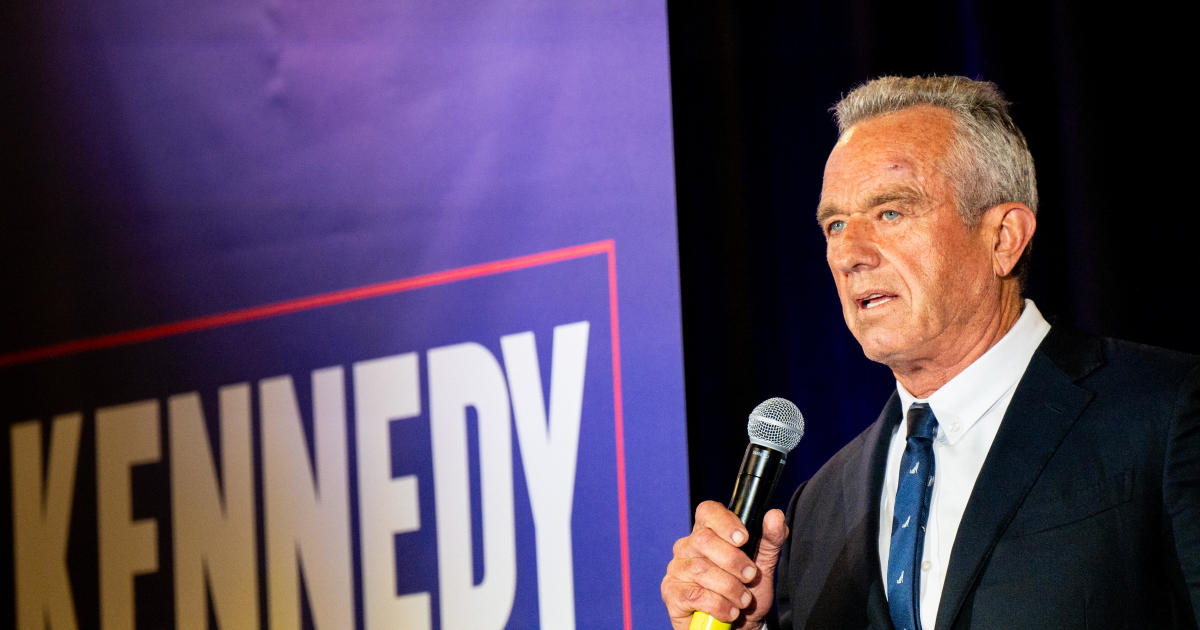Robert F. Kennedy Jr., an independent presidential candidate, has been disqualified from appearing on New York’s general election ballot after a judge ruled that he falsely claimed a New York residence on his nominating petitions. The ruling, delivered by Judge Christina Ryba, stated that Kennedy’s assertion of a New York address as his “place of residence” was deemed a “false statement,” indicating that he had no intentions of relocating back to the Empire State and had only listed the location for political gain.
Ryba’s decision is expected to be appealed by the August 15 deadline. If upheld, it would prevent Kennedy from being on the New York ballot and could potentially lead to challenges in other states where he used a New York suburban address to gather signatures.
The judge’s ruling was based on the evidence presented during the trial, which demonstrated that Kennedy’s connections to the New York address existed only on paper and were maintained solely for the purpose of upholding his voter registration and political status in the state. Kennedy, in his defense, testified in court the previous week that he had considered New York his home since childhood and had plans to return. He explained that he had temporarily moved to California in 2014 to live with his wife and was currently renting a room at a woman’s home in New York.
Barbara Moss, the homeowner, testified that Kennedy paid her $500 a month for the room but had only spent one night there. She received the first rental payment from him on May 20 of this year.
In response to the ruling, the Kennedy campaign issued a statement condemning the decision as “openly partisan” and expressed their commitment to continue the legal battle. They highlighted Kennedy’s voter registration, tax payments, possession of a New York driver’s license, legal practice in New York, and recreational licenses in the state as evidence of his ties to New York.
The campaign’s Senior Counsel, Paul Rossi, announced their intention to seek injunctive relief in the Southern District of New York, emphasizing the need to protect voters’ rights if state court judges were disregarding the Constitution. Kennedy himself criticized the Democrats for their actions, accusing them of undermining democracy by attempting to limit voter choices.
The lawsuit against Kennedy was supported by Clear Choice Action, a Democrat-aligned super PAC that aims to hinder third-party candidates in the presidential election. Pete Kavanaugh, the founder of Clear Choice Action, accused Kennedy of lying about his residency and providing a false address on his filing papers and candidate petitions in New York. The super PAC has also initiated legal action against Kennedy in Pennsylvania and filed objections to his candidacy in Illinois, with similar efforts being led by other Democratic allies in Nevada and Delaware.
A DNC spokesperson, Matt Corridoni, characterized Kennedy as a “deeply troubled, reckless, and dangerous man” who prioritized his own interests over the welfare of the American people. He alleged that Kennedy was willing to act as a spoiler for Donald Trump in the election and had even considered endorsing Trump in exchange for a job in his administration. Following the ruling in New York, Corridoni stated that they would be evaluating their options in other states based on the outcome.
The Kennedy campaign did not respond to requests for comment on the matter.
In conclusion, the disqualification of Robert F. Kennedy Jr. from the New York ballot has sparked a legal battle between his campaign and Democratic opponents, with implications for his candidacy in other states as well. The controversy surrounding his residency claims and the allegations of deception have cast a shadow over his presidential aspirations, raising questions about the integrity of the electoral process and the role of third-party candidates in the upcoming election.









